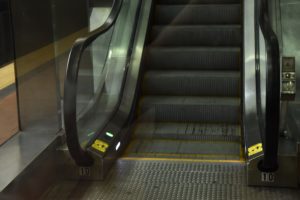How to Determine If You Have Grounds for a Premises Liability Claim

If you were seriously hurt on someone else’s property, you may be thinking about taking legal action. After all, you’re almost always entitled to a reasonable expectation of safety, regardless of whether you’re entering a private residence or business establishment.
Like other kinds of accident scenarios, whether you actually have grounds for a claim is going to come down to the circumstances in which you were hurt and the kinds of damages you incurred as a result. The easiest way to determine how you should proceed is by consulting a premises liability attorney. A knowledgeable professional can evaluate the situation from all angles to confirm if taking action is worth your while.
If you’re wondering what will go into the evaluation, here are some of the biggest factors your personal injury lawyer will consider:
1. How You Were Hurt
If you were merely having a clumsy moment and tripped for no real reason, you probably won’t have grounds for a claim. In order to hold the owner or occupier liable, you’re going to have to prove that there was a hazard on the premises that they knew about—or should have known about—but failed to address. Consequently, the hazard must have been directly responsible for the injuries you sustained.
Hazards that commonly result in personal injury actions include:
- Unmarked thresholds,
- Wet floors,
- Uneven stairs,
- Broken railings,
- Inadequate security, and
- Inadequate lighting.
2. The Kinds of Losses You Suffered
You must be able to show that you incurred actual damages as a result of the accident. In Florida, recoverable damages include medical bills, lost earnings, and the cost of reasonably necessary replacement services.
Personal injury claimants can also seek compensation for non-economic damages like pain and suffering, mental anguish, and emotional distress. In that same vein, their spouses are usually entitled to funds for loss of consortium. This encompasses the loss of companionship, affection, society, and services they suffer because of their husband or wife’s condition.
3. Whether Any Critical Deadlines Have Passed
If the statute of limitations has passed and you’re no longer able to bring a formal lawsuit, it probably won’t be worth filing a claim since the insurance adjuster won’t have incentive to settle. Put another way, if the accident happened a while ago, there’s a chance that taking action could be futile.
In Florida, injured parties typically have four years from the date on which they were hurt to file a suit. There are several exceptions to this deadline, however, so you might actually have a lot less time to bring your case.
Call 772-266-5555 for a Free Consultation with a Stuart Premises Liability Attorney
Do you want to hold a negligent property owner liable for the harm they caused you? To determine the most strategic way to proceed, turn to Weston & Pape.
We have helped more than 10,000 clients seek justice after being wronged by others. Fill out our Contact Form or call 772-266-5555 to set up your free case review with a premises liability lawyer in Stuart.

 Call Us Today
- It's Free
Call Us Today
- It's Free